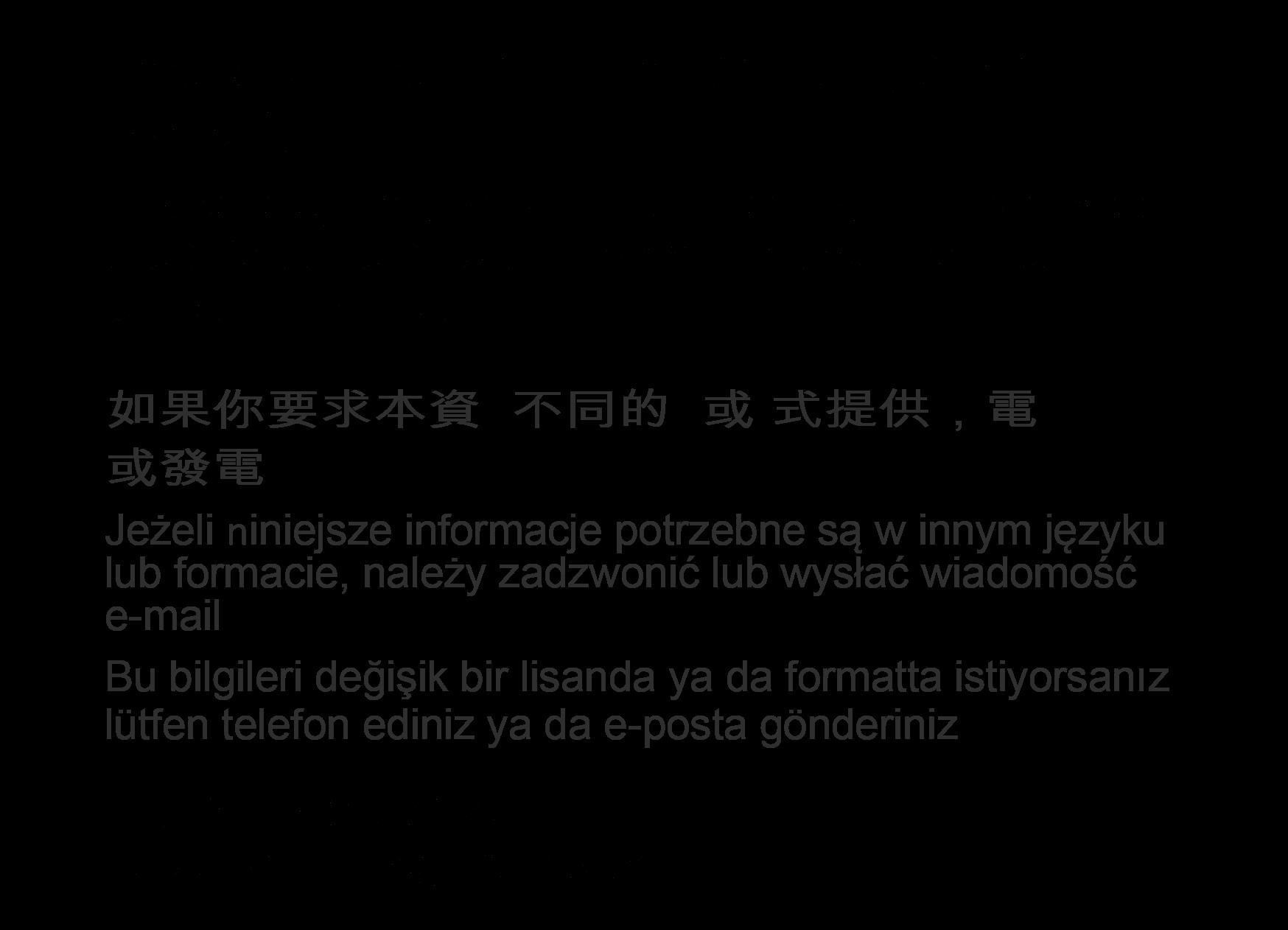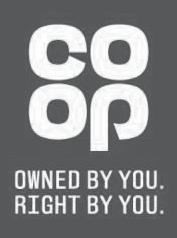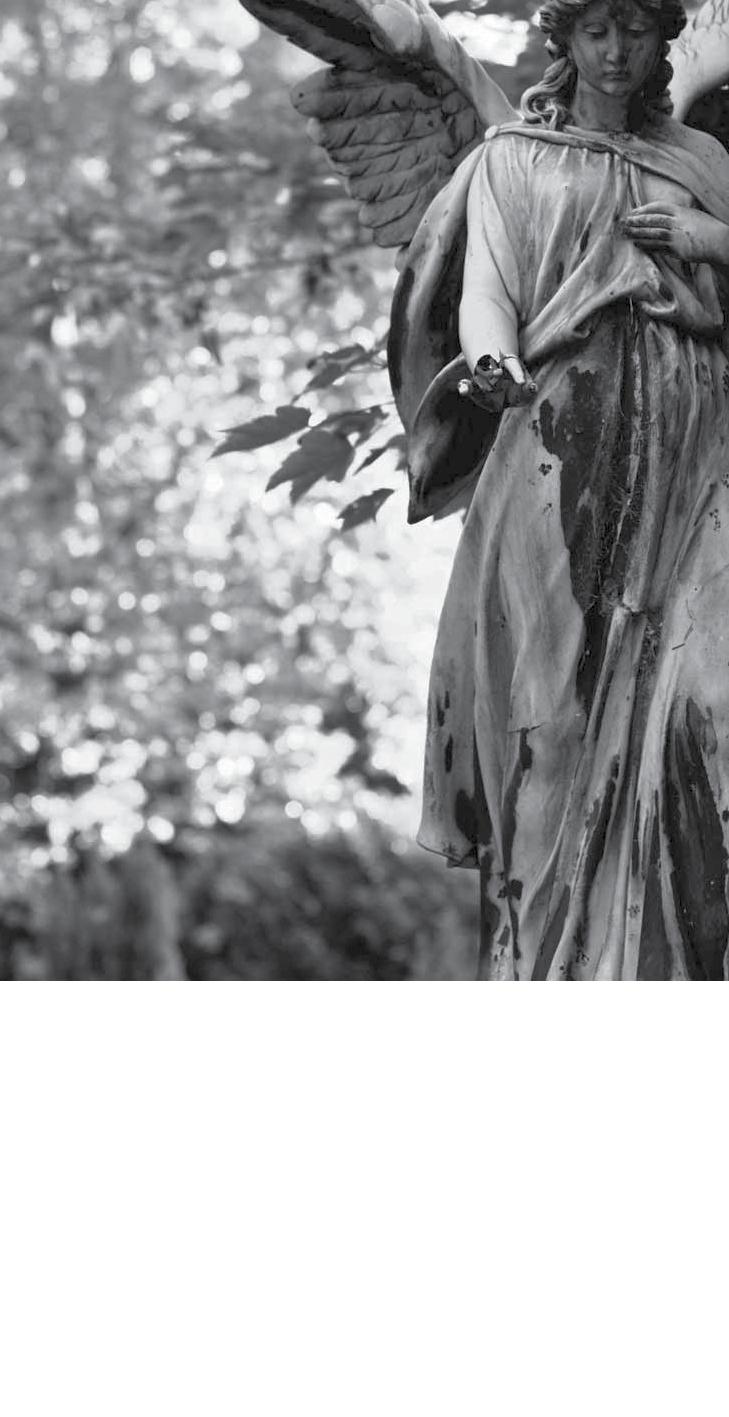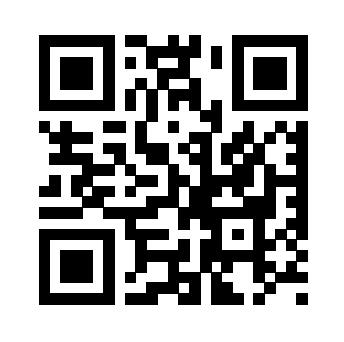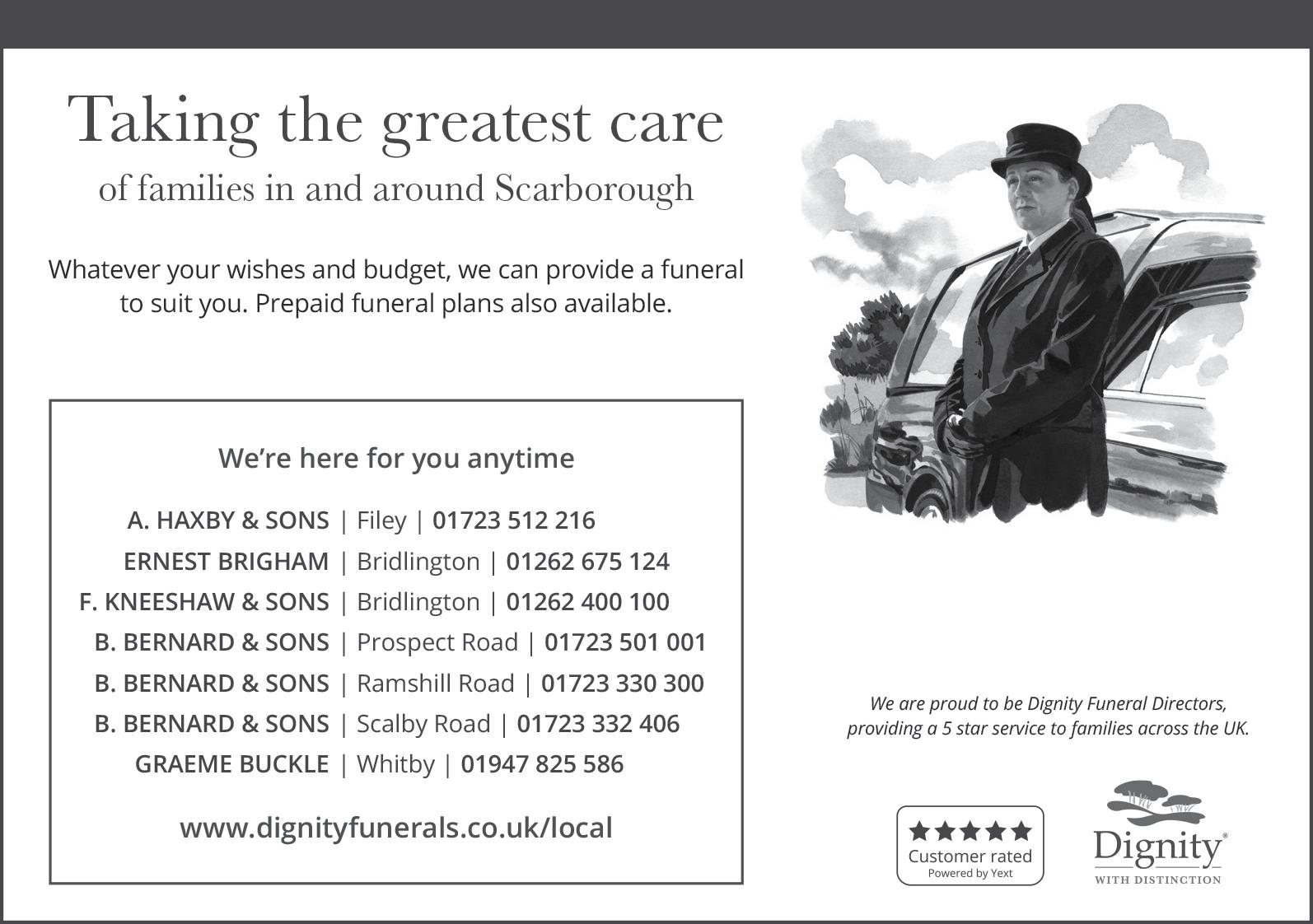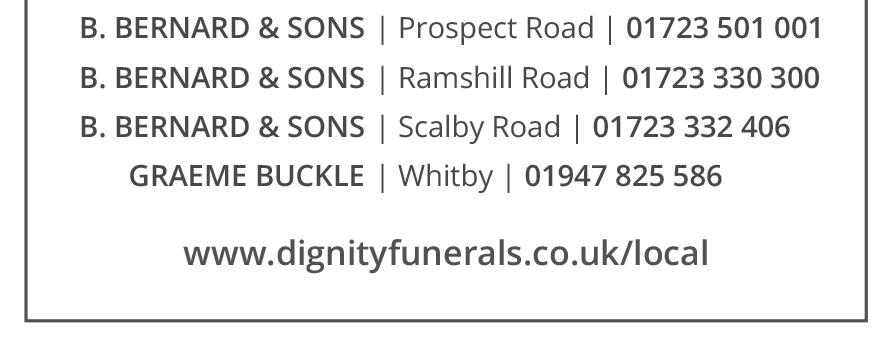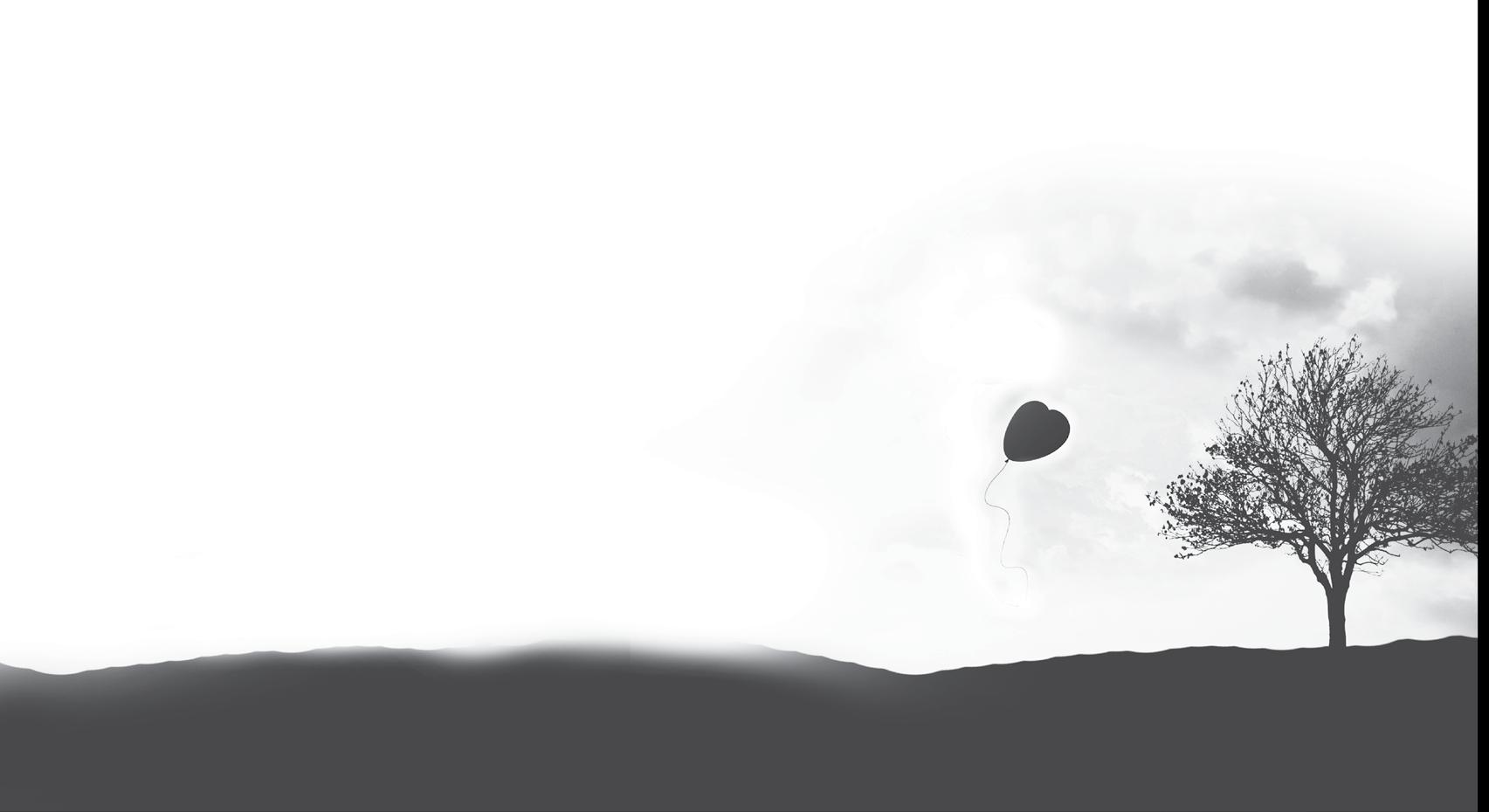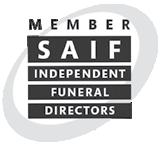The hospital staff wish to express their sincere sympathy to you at this time.
This booklet aims to provide some practical help and advice during the early days of your bereavement.
Please don’t hesitate to ask questions if you are unclear about any matter, our staff will always be pleased to help.
Disclaimer
Whilst York and Scarborough Teaching Hospitals NHS Foundation Trust is very grateful for the support given by placing advertisements in this booklet, the Hospital regrets that it cannot accept any liability for any of the services provided.
Bereavement Services*
Scarborough Hospital Woodlands Drive
Scarborough YO12 6QL
Telephone: 01723 385178
Office opening times: 8.30am - 4.30pm Monday - Friday
*See map illustrating the interior layout of the Hospital shown on page 4.
Parking is available in the drop off zone near the North Entrance for 20 minutes, or alternatively in the main pay on foot car park.
Please access our website: www.yorkhospitals.nhs.uk Bereavement Services is under the “Services” heading of the homepage.
What do I do next?
The Bereavement Office is open Monday to Friday from 8.30am to 4.30pm. On the next working day after the death has occurred, please call the Bereavement Services team who will advise you on the availability of the Medical Certificate of Cause of Death (MCCD). Please ring the appropriate ward to arrange collection/disposal of any property as soon as is convenient.
Please telephone the Bereavement Team on 01723 385178 after 9am. Please be aware that it can take up to three to four working days for the MCCD to be completed. The Bereavement Officer will keep you updated with any delays due to unforeseen circumstances.
Please be aware that on Mondays (Tuesdays following a Bank Holiday) our phones are exceptionally busy as we start our paperwork processing. We do have a voicemail answering system so please do leave a message. On particularly busy days there may be a delay in us returning your call but please be reassured that in the mean time we will be liaising with the ward staff and doctors to arrange for the MCCD to be completed.
You will need this certificate in order to register the death; Bereavement Services will be able to advise you how to do this. However, if the death has been referred to the Coroner there will be a delay in the certificate being issued. The relevant staff will keep you updated about this.
Further information about the duties of the Coroner are included in this booklet.
Registering a death
Bereavement Services will electronically forward the Medical Certificate of Cause of Death (MCCD) to the Register Office.
However, relatives will need to contact the Registrar directly to arrange this appointment and to provide Next of Kin (NoK) details. The telephone number is 0300 131 2131.
Property
Relatives are to liaise with the ward to arrange collection of the deceased person’s property.
Scarborough Hospital: interior layout
Our Values: Caring about what we do • Respecting and valuing each other Caring with
Medical Certificate of Cause of Death
Bereavement Services will electronically forward the Medical Certificate of Cause of Death (MCCD) to the Register Office.
However, relatives will need to contact the Registrar directly to arrange this appointment and to provide Next of Kin (NoK) details.
The telephone Number is 0300 131 2131.
On the next working day after the death has occurred please call the Bereavement Services team on 01723 385178 who will advise you on the availability of the Medical Certificate of Cause of Death (MCCD) and any patient’s property and valuables.
You will need this certificate in order to register the death; Bereavement Services will be able to advise you how to do this. However, if the death has to be referred to the Coroner no certificate will be immediately available, relevant staff will keep you updated about this. Further information about the duties of the Coroner are included on page 14 of this booklet.
Registering the death
Once the Medical Certificate of Cause of Death has been issued, you must register the death with the Registrar of Births, Deaths and Marriages within five days. There is no charge to register a death, but you will need to purchase at least one copy of the certified death certificate. You may need several copies and you can seek advice from the bereavement team or register office about how many you may need and who for.
Examples of departments and services that require a certified death certificate are:
• Banks • Solicitors
• Insurance Companies • Private pension companies
Each certified death certificate will cost £12.50, payable by card payment only.
In order to register a death, you must qualify as one of the following:
• A relative of the person who has died
• Not related to the person who has died but you were present at their death
• The person instructing the funeral director
It would be helpful if you can take along the following information about the person who has died:
• The birth certificate of the person who has died, if possible
• The medical card of the person who has died, if possible
When you come to register the death the Registrar will ask you for the medical certificate which gives the cause of death, unless the Coroner has carried out a post mortem, in which case all paperwork will have been delivered to the Registrar directly.
The Registrar will ask about:
• the date and place of death
• the full name of the person who has died
• their date and place of birth
• their home address
• their last occupation and whether they were retired
• whether the person who has died was married or a registered civil partner when they died
• name and occupation of the living or deceased spouse or registered civil partner
If it is a married woman or widow who has died, they will need to know her maiden name and her husband’s full name and occupation.
They will ask for the date of birth of any spouse or registered civil partner still living.
When you register the death you will receive a Green or Yellow form to give to the funeral director to allow arrangements to be made for cremation or burial. You will also receive a White form to complete for the Department for Work and Pensions.
Our Values: Caring about what we do • Respecting and valuing each other
The main registry office is located at North Cliff House, 69 Burniston Road, Scarborough YO12 6PH and operates on an appointment only basis. Please call 0300 131 2131 to make an appointment.
Registry office location map
There are other registry offices that are within this locality and are as follows.
To make an appointment, please contact 0300 131 2131.
Malton registration office
Ryedale House, Old Malton Road, Malton, North Yorkshire YO17 7HH
Whitby registration office Farndale House, Church Square, Whitby YO21 3EG
Please note that should you wish to register the death of your loved one out of the locality, such as in Driffield or Bridlington for example, then this can be done but will take longer with it being out of the area.
Medical Examiner Service
All deaths that occur within the Trust will be reviewed by an independent doctor called a Medical Examiner.
The role of the Medical Examiner is to review the notes of the person of importance to you, following their death. The Medical Examiner will have a discussion with a doctor that was part of the team treating the person who has died to ensure that an accurate cause of death is documented on the Medical Certificate of Cause of Death (MCCD).
The Medical Examiner or a Medical Examiner Officer will contact you once the Medical Certificate of Cause of Death has been completed to discuss the circumstances surrounding the death of the person of importance to you and what is documented on the certificate. There will also be an opportunity to ask any questions that you may have or to comment on the care they received in Hospital.
Tell Us Once Bereavement Service
When someone has died there are lots of things that need to be done, at a time when you probably least feel like doing them. One of these is contacting government departments and local council services that need to be told.
The Registrars provide a service which will make this easier. This service means that you can just tell the Registrar and these organisations will be contacted. You can use this service to tell the following organisations about the death:
Local Councils:
• Housing Benefit Office
• Council Tax Benefit / Support Office
• Council Tax
• Collection of payment for council services
• Electoral services
• Blue Badges
• Adult Services
• Children’s Services
• Council Housing Department for Work and Pensions:
• Pension, Disability and Carers Service
• Jobcentre Plus
• Overseas Health Team
HM Revenue & Customs:
• Child Benefit
• Child Tax Credit & Working Tax Credit
• Personal Taxation
Identity and Passport Service:
• Driver and Vehicle Licensing Agency
• Ministry of Defence, Service Personnel and Veterans Agency
• War Pensions Scheme
Information you will need to use this service:
To make sure the right information is given to any organisations that the Registrar contacts for you and so that you get the most out of this service it will help if you can bring along with you the following information about the person who has died:
• Their National Insurance number and date of birth
• Details of any benefits or services they were receiving
• Their Driving Licence or Driving Licence number
• Their Passport or Passport number
We may also ask you for information about:
• Their next of kin
• Any surviving husband, wife or civil partner
• The person dealing with their estate
What delays may you face
Sometimes there are unavoidable delays in the issuing of the Medical Certificate of Cause of Death. In these circumstances the person’s body cannot be released immediately, and a delay is to be expected.
The main causes of such delays are listed here:
1. When the death takes place at the weekend or on a public holiday.
However staff will endeavour at all times to assist in the fulfilling of any particular religious requirement you may have in relation to funeral practices. If you need to proceed quickly ask the ward staff to contact the Bed Manager to advise you what to do.
2. When the death is reported to the Coroner: see ‘What are the Coroner’s Duties’.
3. When the funeral is to take place out of England or Wales. An ‘Out of England’ order will need to be issued to you by the Coroner before proceeding.
A ‘Free from Infection’ Certificate must be issued by the hospital prior to transportation. Your Funeral Director can arrange this.
4. The body of a deceased person cannot be released from the hospital until the death has been registered, and you have been given the Green or Yellow certificate or the Coroner’s white certificate by the Registrar. Please give this certificate to the Funeral Director and/or the person who will then collect the body from the hospital.
What are the Coroner’s Duties?
A death sometimes has to be reported to the Coroner for legal reasons and the hospital staff will advise you if this has to happen, this is usually when a Doctor is unable to issue a Medical Certificate of Cause of Death. The Coroner is appointed to investigate certain types of death.
A death will be referred to the Coroner if:
• no precise cause can be established
• it follows an operation, or if it is possible that it could be due to a complication of surgery or anaesthetics
• it is not thought to be from natural causes
• it is due to an injury or a fall, however it happened, or if an accident or negligence is alleged
• it takes place within 24 hours of admission to hospital.
There are other cases that must be referred to the Coroner, for example, death from industrial diseases, poisoning, suicide, murder etc. The Coroner’s Office will be able to help you and give you advice. If a postmortem is required, a delay may be experienced before the registration and funeral can take place.
You will have to wait to hear from the Coroner’s Officer before registering the death. If there is to be a post mortem, the Coroner’s Officer will explain the procedure to you and advise you when it is appropriate to register the death.
The Coroner’s Office telephone number is 101 - when prompted select option 2, then ask for either the Coroners’ Officer, Scarborough or by name.
Can I View the Deceased?
Staff can help you to arrange a visit to view the deceased in the hospital. Funeral Directors also have their own facilities where you are able to view the deceased.
Viewing can take place on the ward for a limited time just after death, after which viewing can be made by appointment at the hospital mortuary or the Funeral Directors.
To make an appointment to view at the hospital mortuary, please telephone the mortuary direct on 01723 342213. Viewing is available Monday-Friday 8.00am-4.00pm.
Organ, Tissue and Body Donation
Organ Donation- has to be considered before death occurs, and is only possible in certain hospital areas, for example, the Intensive Care Unit and Emergency Department.
Tissue Donation- is possible up to 24 hours after death, if this is something you wish to consider please inform the ward staff as soon as possible. The consent of the next of kin is always required for tissue donation.
More information about organ and tissue donation can be found at www.organdonation.nhs.uk
Organ Donation law www.organdonation.nhs.uk/uklaws/organ-donation-law-in-england
Body Donation- is the giving of a body for use in teaching anatomy to medical students. It may not always be possible to accept this donation. Under the Human Tissue Act, written consent must be given by the deceased prior to their death; consent cannot be given by anyone else after their death.
More information about body donation can be found at www.hta.gov.uk or by telephoning the Anatomy Unit, Hull York Medical School on 01482 464750.
Who can help me arrange the Funeral?
You can contact a Funeral Director 24 hours a day, including weekends. Your chosen Funeral Director can make all the necessary arrangements and can also advise you on all the procedures and documents you will need as well as the timing of the funeral service. They will come to your house if you prefer. They will answer any questions you may have on burial or cremation. Your own Minister, Priest or religious leader and the Hospital Chaplaincy Service may also be of great help during this difficult time.
Most Funeral Directors belong to their National Association, which has regulations and standards that must be followed.
The person who arranges the funeral is usually responsible for meeting the costs. This can come from the deceased’s estate or any funeral scheme he/ she may have subscribed to. It is possible for banks to release money from the deceased’s estate prior to probate being granted.
Funerals can be expensive although basic costs tend to be similar. However, the final cost can vary considerably. Do not be afraid to mention your budget or obtain estimates from several undertakers.
Financial help may be available if you receive certain benefits. Contact the Department for Work and Pensions (DWP) before making any arrangements.
If the person who has died has no next of kin or there are concerns regarding finances or funeral arrangements, please contact our Bereavement Services Office on 01723 385178 before you make any arrangements and we may be able to offer further advice.
Who can I contact regarding State Benefits?
The Registrar of births and deaths will have given you a notification of death certificate (white certificate) and a pre-paid envelope, which you will need to send to the DWP office after you have filled it in. Further information is available in a DWP booklet ‘What to do after death in England and Wales (D1027)’ available from any DWP office or from the Registrars office.
The number for all advice regarding Bereavement Benefits is: 0800 731 0469.
Probate and legal advice
If you have difficulty in dealing with the deceased’s property, possessions or guardianship of their children, get advice from a solicitor or the Citizens Advice Bureau as soon as possible. If there is no Will, speaking with a solicitor may be helpful. Many solicitors are prepared to offer up to half an hour of legal advice free.
Probate is a document issued by the Probate Registry confirming that an executor has the right to wind up the estate of the person who has died. The ‘estate’ is the house, money and savings left by someone who has died (probate may not be necessary if the estate is small).
For applications and enquiries relating to probate please call 0300 1231072.
Who do I need to tell?
You will probably want to let the family, friends and neighbours know of the death right away. There are several other people who may also need to know.
Priest, Vicar, Minister or Faith Leader
Family Doctor
Dept. Work & Pensions (pensions, benefits etc)
Bank, Giro, Credit Cards, Building Society
Social Services (home helps, home care)
Schools, College or University attended
Place of work (occupational pension)
Executors of the Estate (Will)
Solicitor
Insurance Companies
Library Service
Inland Revenue
Our Values: Caring about what we do • Respecting and valuing each other
Residential or Nursing Home
Landlord, Housing Department
Council Tax office
Electricity, Gas, Telephone, Water Companies
Post Office (redirect mail)
Driving Licence Centre (D.V.L.A.)
Cancel any appointments
Community Equipment Loan Service (CELS) for the return of any equipment
Caring with Pride: Our ultimate objective is to be trusted to deliver
Sample Letters
Here is an example of a letter that you may find useful when informing people about the death:
[Your Name] [Your Address] [Your Postal Code] [Your Telephone Number]
Date:
[Name to whom you are writing] [Department] [Company] [Road] [City] [Postal Code]
Dear Sir/Madam
I wish to inform you of the death of [name of deceased and date of birth].
Please find enclosed with this letter the documentation/ papers which need to be returned to you.
[Name of deceased] died at [hospital name or home address] on [date].
If you require any further information, please contact me at the above address.
Yours faithfully [Your name].
Encs
Please note if you are writing to a Solicitor, Bank, Building Society, TV licensing or Insurance Company you will need to include a copy of the Death Certificate. Photocopies are not accepted for insurance or legal reasons. You may need to include the relevant account and policy numbers if available.
Stopping Junk Mail to the recently deceased
If someone you know has died, the amount of unwanted marketing post being sent to them can be greatly reduced which helps to stop painful daily reminders.
By registering with the free service www.stopmail.co.uk the names and addresses of the deceased are removed from mailing lists, stopping most advertising mail within as little as six weeks. If you cannot access the internet you can call 0808 168 9607, where you will be asked for very simple information that will take only a few minutes to complete. Alternatively, ask the bereavement team for a leaflet that can be returned in the post.
This free of charge service provided by the Bereavement Support Network will actively reduce the unwanted marketing mail but also can help reduce the likelihood of identity theft following the death of someone close. The information is not used for any other purpose and you only have to complete this once. Additionally to Stop Mail a comparable service can also be accessed from the Bereavement Register or Deceased Preference Service if you would prefer to use them.
Is there any Bereavement Care provided by the Hospital?
The Hospital Chaplaincy Service is a multi-faith department whose role is to provide pastoral, spiritual and religious care for patients and their relatives. Chaplaincy can be contacted on: 01723 342500.
Both Bereavement Services and Chaplaincy staff are able to provide you with practical advice during the early days of your bereavement. Both can also help to signpost you to find appropriate ongoing support from among a wide variety of local organisations including voluntary organisations, support groups and groups within churches and faith communities.
Some advice you may find helpful
Living through Grief
The death of someone close to you can be a painful experience. There are often intense emotions that are not easy to cope with.
However, this grieving is a normal process that allows you to express your deepest feelings, come to terms with the death of your relative or friend and eventually find ways to adapt to your changed circumstances.
The grieving process is often described in terms of different stages. You may experience only some or all of them and some may happen on several occasions.
The time it takes to go through this process can vary considerably and is often longer than most people imagine. We are all different and grief in one person will not necessarily follow the same pattern as in another. The following are some of the things you may experience:
Shock and Disbelief
When a death happens, even if expected, it is a shock to your system. You find it difficult to deal with and your mind often does not want to believe it.
People talk about feeling numb, as if the events are not real and do not affect them. This is a normal reaction that allows you to cope with the situation over a period of time.
To begin with you may be surprised at how well you cope and are able to organise matters, such as the funeral. However, you may find a few weeks later that you are having difficulty making even the simplest of decisions. This too is quite common when you have more time to think about the situation and less to distract you.
Sadness and Depression
As the numbness wears off, there are often periods of intense sadness and crying, leading to exhaustion. You may feel that you are not in control and have days when you feel depressed. This experience will usually alternate with time of being focused, organised and able to cope.
These changes in mood can go on for several months, although the intensity should diminish over time. Being able to express your emotions and share your feelings with someone you trust can be a great help.
Anger and guilt
Anger and guilt can also be expressions of grief and responses to the loss of somebody close.
Anger can be directed at what has happened or the apparent injustice that death brings.
People often become angry when hurt and want to blame someone, even if that person is not at fault.
Guilt happens when anger is directed at yourself. Instead of blaming others you blame yourself for what has happened. “If only I’d done this or that…..” This is all part of the wish for things to be different and to find a reason for what has happened.
Again, it helps to talk to somebody about how you are feeling as this often puts matters into perspective.
Acceptance
There will be a time when your inner resources are replenished and feelings of strength and purpose return.
Life will be different but you will be able to talk about the deceased person by name, recall happy memories, laugh over various things that have happened and all without bursting into tears or plunging into the depths of despair. All this may seem far away at the moment, but that day will come.
Talking to children about death
As adults we feel the need to protect our children from things that we might find difficult. It is easy to assume children will not understand death and bereavement, or that it will be too upsetting for them.
However, we can often underestimate a child’s ability to cope. Like adults, children find it harder to cope if they are not told what is happening and can be more frightened by their own imagination.
Children should be told facts in a simple manner, using appropriate words, e.g. dead, rather than lost or asleep.
Give them plenty of time to ask questions and offer plenty of love and reassurance. It is helpful for adults to share feelings with children, such as feelings of sadness. By doing so they learn that it is natural to feel sad when someone dies. Children often like to draw pictures or write stories as part of their way of saying goodbye.
Help
People do not always find it easy to talk about death. You may feel that you cannot show your emotions or are expected to put on a brave face. However, talking about your feelings often helps. If you do not feel able to confide in a friend, a religious leader or your doctor may be able to help. We have also provided a list of contact numbers of various organisations to offer you support, which are located in the “Advice and Support Organisations” of this booklet.
Do try to look after yourself and take extra care. Do allow yourself time to work through your grief as this is an important part of your future well-being.
Advice & Support Organisations
British Association of Counselling and Psychotherapy (BACP)
01455 883300
Help and advice finding an accredited counsellor in your area.
Macmillan-Cancer Backup
0808 808 00 00
A telephone information and advice service offering support for people with cancer, their relatives and friends.
Citizens Advice Bureau
03444 111 444 www.cany.org.uk
Advice can be given on all legal and practical matters following a death.
Compassionate Friends www.tcf.org.uk
0345 123 2304
An organisation of bereaved parents and their families offering understanding, support and encouragement to others after the death of a child or children.
CRUSE Helpline
www.cruse.org.uk
York & North Yorkshire Area
01904 481162 (24hr answer phone)
The local CRUSE offers counselling, support and advice. If you live in a different location, CRUSE can be contacted via the national line.
National Helpline: 0808 808 1677
A newsletter and extensive list of books and leaflets are published.
CRUSE Bereavement Care Youth Line
www.hopeagain.org.uk
Freephone: 0808 808 1677
A website for children and young people aged 12 –18 who have been bereaved. Also has details of a confidential telephone for professional confidential bereavement counselling.
Department for Work and Pensions (DWP)
0800 055 6688
Provides benefits and services for a wide range of people, including the social fund funeral payment.
Lesbian and Gay Bereavement Project
020 7833 1674
Offers advice and support to people bereaved by the death of a same-sex partner through a telephone helpline, provide advice on suitable clergy for the funeral, funeral directors and solicitors for any legal matters.
Roadpeace
0800 160 1069
www.roadpeace.org
3rd Floor, 3Space International House 6 Canterbury Crescent, Brixton, London, SW9 7QD
Roadpeace offers a practical and emotional support service to the bereaved and injured through road traffic accidents.
SIBBS (Support in Bereavement for Brothers and Sisters)
www.tcf.org.uk
A sister organisation to Compassionate Friends. A nationwide self-help support group for people who have experienced the death of a brother or sister. Offers the same support as Compassionate Friends.
Support After Murder and Manslaughter (SAMM)
0121 472 2912
(Answer phone when office is closed)
www.samm.org.uk
Help through befriending, for people who have suffered the loss of a child, relative, or friend of any age, as a result of murder or manslaughter.
Sudden Death Support Association
www.sudden.org
Offers help to relatives and close friends of people who die suddenly. It is run by people who have experienced a sudden and tragic loss and would like to help others in their time of need.
Survivors of Bereavement by Suicide (SOBS)
0300 111 5065
9am – 7pm, Everyday www.uksobs.com
We exist to meet the needs and break the isolation of those bereaved by the suicide of a close relative or friend.
We offer emotional and practical support in a number of ways:
• Bereavement Packs
• Group Meetings (in a number of locations).
The Samaritans
National Freephone 116 123
Offers confidential telephone support for all in despair.
SANDS (Stillbirth and Neonatal Death Charity)
www.yorksands.wordpress.com
Terrence Higgins Trust 0808 802 1221 10am to 6pm Monday to Friday www.tht.org.uk
Provides practical support, help, counselling and advice for anyone who has lost someone due to AIDS.
WAY - Widowed & Young
www.widowedandyoung.org.uk
Offers support and advice and may be able to put widows in contact with people in a similar situation in their area.
The Scarborough Cancer Information and Support Service
01723 342606
Facilities:
• Kinder Place Nursery
• St Monica’s Easingwold
• Archways
• Malton Hospital
• Bridlington Hospital
• Whitby Hospital
• Whitecross Court
• St Helen’s
• The New Selby War Memorial Hospital
Main services:
• Fundraising for your local hospital
• Cancer Information and Support in Scarborough
The Scarborough Cancer Information and Support Service can provide confidential information and support to anyone affected by cancer. It is located by the reception and the WRVS coffee shop at the main entrance.
Comments, Queries and Further Assistance
We hope you have found this leaflet helpful. If you would like to tell us what you think, or ask any questions please contact the Bereavement Services Department, The York Hospital on telephone number 01904 725445.
Patient Advice and Liaison Service (PALS)
If you have any comments on the service you have experienced, you can make your comments to the person in charge of the ward/department. Alternatively, the Patient Advice and Liaison Service (PALS) at the hospital can provide assistance if you have cause for concern, compliments or suggestions regarding the care of your loved one or your family. They can be contacted on telephone number 01723 342434. An answerphone is available out of hours or you can email on pals.york@york.nhs.uk.
We wish to thank the advertisers and sponsors, without whom this publication would not have been possible.
However, the hospital does not endorse any of the products or services they provide.
Feedback Questionnaire
We appreciate this is a difficult time for you, but it would help us to provide the best service we can if you could share your views with us.
On which ward was your relative or friend cared for prior to their death?
Was the advice and information you received from the Bereavement Services staff helpful?
Is there anything we could improve on?
Tell us what you think of this booklet
We hope that you found this booklet helpful. If you would like to tell us what you think, please contact: Bereavement Services, Scarborough Hospital, Woodlands Drive, Scarborough, YO12 6QL, telephone 01723 385178.
Teaching, training and research
Our Trust is committed to teaching, training and research to support the development of health and healthcare in our community. Healthcare students may observe consultations for this purpose. You can opt out if you do not want students to observe. We may also ask you if you would like to be involved in our research.
Patient Advice and Liaison Service (PALS)
PALS offers impartial advice and assistance to patients, their relatives, friends and carers. We can listen to feedback (positive or negative), answer questions and help resolve any concerns about Trust services.
PALS can be contacted on 01904 726262, or email pals@york.nhs.uk. An answer phone is available out of hours.
Owner Bereavement Services Group
Review Date November 2025
Version 4 (issued November 2022)
Approved by End of Life Lead Nurse
Document Reference PIL1592 v4
Printed October 2023
© 2022 York and Scarborough Teaching Hospitals NHS Foundation Trust. All Rights reserved.
www.yorkhospitals.nhs.uk
The Hospital would like to thank RNS Publications for publishing this information and the following pages contain some features from services o ering their help at this time.
Whilst the Hospital is grateful of their support it does not endorse or recommend any of the services that they provide.

